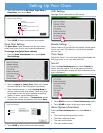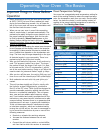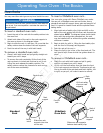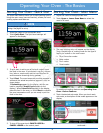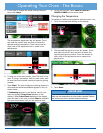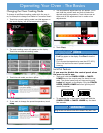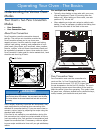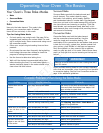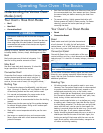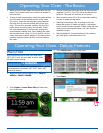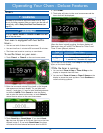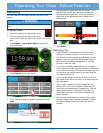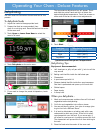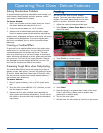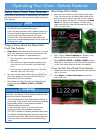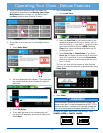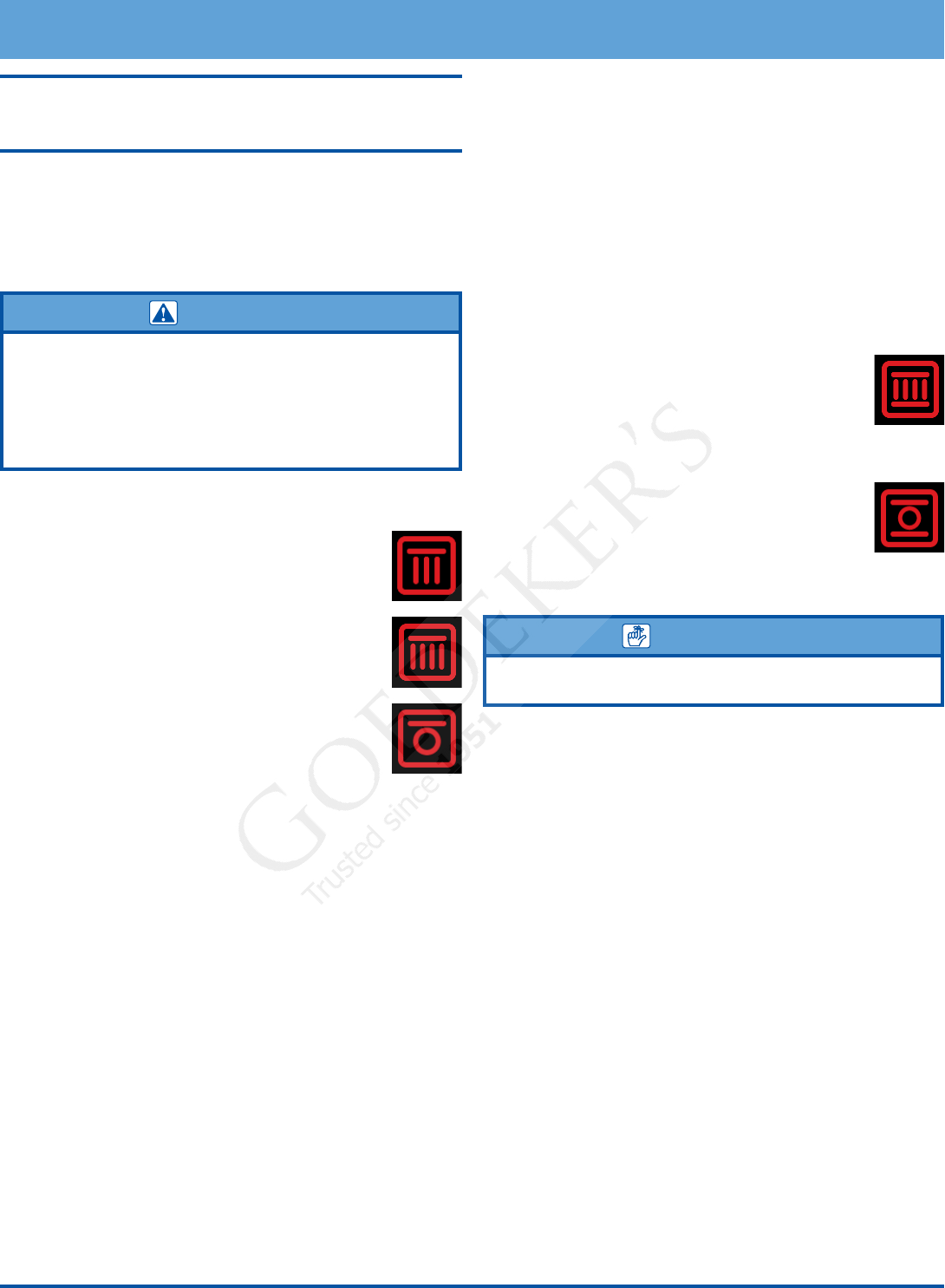
16
Operating Your Oven - The Basics
Understanding the Various Oven
Modes (cont.)
Your Oven's Three Broil Modes
• Broil
• Max Broil
• Convection Broil
warning
• Use the broil modes only with the oven door completely
closed.
• To avoid damage to the meat probe, remove it from the oven
when using either of the broil modes. If the meat probe is
connected the broil modes will not start (an error signal to
appear on the display).
Broiling is a quick, avorful way to prepare many foods,
including steaks, chicken, chops, hamburgers and sh.
Broil
Broil mode uses one of the broil elements. It is
best for broiling smaller amounts of food.
Max Broil
Max Broil uses both broil elements. It is best for
larger quantities of food to be broiled.
Convection Broil
Convection Broil uses a combination of the con-
vection element and fan and a broil element. It
is best for items that do not need to be ipped
such as, thinner cuts of meat, sh and garlic bread.
Broiling Tips
• To reduce the chance of overcooking, use rack posi-
tions 1 through 4. Results will vary based on the type
of food being broiled and the rack position used.
• It is normal and necessary for some smoke to be
present to give the food a broiled avor.
• Setting the timer is recommended to time the broiling
process.
• Always use a broiler pan and grill to provide drainage
for excess fat and grease. Doing so will reduce spat-
ter, smoke and are-ups.
• Start with a room temperature broiler pan for even
cooking.
• Use tongs or a spatula to turn and remove meats.
Never pierce meat with a fork because the natural
juices will escape.
• Broil food on the rst side for a little more than half of
the recommended time, then season and turn. Season
the second side just before removing the food from
the oven.
• To prevent sticking, lightly grease the broiler grill.
Excess grease will result in heavy smoke. For easier
cleaning, remove the broiler pan and grill when
removing the food.
Your Oven's Two Roast Modes
• Roast
• Convection Roast
Roast
Roast mode uses both the bake element and
a broil element. It is best for half and whole
cooked hams, rack of veal, and rack of lamb. When brais-
ing in the oven, cover foods with foil if necessary.
Convection Roast
Convection Roast uses a combination of the con-
vection element and fan, a broil element and the
bake element. It is best for rib roasts, turkeys, chickens,
etc.
important
Modes that utilize convection tend to have cooking time
that is about 25% shorter.
As with other convection modes, adjust and test cooking
times for your recipes, especially those that are home-
made. See the Pure Convection section on page 14 for
additional guidelines.
Roasting Tips
• All baking modes can be used to roast in your oven.
However, the Convection Roast mode is recommended
to produce meats that are deliciously seared on the
outside and succulently juicy on the inside, more
quickly. Foods that are exceptional, when prepared in
the Convection Roast mode, include: beef, pork, ham,
lamb, turkey, chicken and cornish hens.
• Always roast meats fat side up in a shallow pan, using
a roasting rack. Always use a pan that ts the size of
the food being prepared. The broiler pan and grill that
come with the oven, can be used in most cases. No
basting is required when the fat side is up. Do not add
water to the pan. It will cause a steamed effect.
• Poultry should be placed breast side up on a rack in a
shallow pan that ts the size of the food. Again, the
broiler pan and grill that come with the oven can be
used. Brush poultry with melted butter, margarine or
oil before and during roasting.



